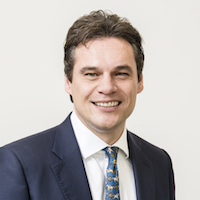This month:
Wealth management experts examine strange moves in the bond and currency markets, the ramifications of global fiscal policy and why US equities may yet have a way forward.
Expert investment views:
Investors are warned against seeking a “free lunch” in the bond market
Myriad investment opportunities exist, but beware valuation potholes
Why Fed firepower means there may be a way forward for US equities yet
Professionals advise patience, caution and positioning for the unexpected
1. Interest rates, currencies and no “free lunch”
Insights from:

Ever since the great crash of 2008, interest rates across the globe have been on the move. In fact, so much so that we now even have negative rates on government debt in places like Germany and Switzerland. Now, why anyone would pay someone else to lend them money is beyond me, but the fact remains that the US has now tried to raise rates to get back to normal. But as the rest of the world has not, we now have a very large disparity in rates, and it is causing all kinds of problems in the bond and currency markets.
As the rest of the world has not, we now have a very large disparity in rates, and it is causing all kinds of problems in the bond and currency markets
Popular misperception would lead one to believe that one should just buy the debt of the government offering the higher rates. In other words, if I am an investor based in Germany and looking at paying 0.5% to the Bundesregierung [the executive body of the German Federal Republic], why not buy the US bonds and receive 2.5%? Well, that has to do with the currencies and as the exchange rates move up and down, a gain in yield can easily be lost on any adverse move.
To protect ourselves from this risk, we can hedge the currency exposure, but wouldn’t you know it, the cost of doing that is exactly the difference in yield and currently stands at 3% for USD into EUR. That makes sense too, otherwise we would all be doing it, and is yet another lesson, in that the market tends to have it right and making money has never been as easy as it looks.

Christian Armbruester
Chief Investment Officer at Blu Family Office
2. Why active management now?
Insights from:

At Bordier, we seek the very best global opportunities wherever they may be, including a preference for using the best talent in the fund management industry i.e. those managers who are experts in their fields.
We believe that with the current economic backdrop, it is as important to decide where not to invest as it is to choose where to invest.
Whilst most global markets have made very good progress so far this year, it does not necessarily mean that opportunities for investment have now dried up. On the contrary, many active fund managers we speak to point out the valuation anomalies and opportunities that still exist in several corners of their respective markets, anomalies that in some case have been driven by the vast flows into index-based investment funds or skews based around extended stimulus.
During this next phase of the market cycle, even greater importance is likely to be given to the resilience in firms’ business models and profit lines, favouring companies with strong or strengthening balance sheets.
During this next phase of the market cycle, even greater importance is likely to be given to the resilience in firms’ business models and profit lines, favouring companies with strong or strengthening balance sheets
Companies with low barriers to entry in their field of expertise and ones that can take advantage of, or are likely to be more immune to, regulatory pressures or technological disruption should also be looked upon quite favourably.
Those companies that have all or most of these attributes, but can also keep their focus on returning value to shareholders, whether by dividends, share price appreciation or a combination of the two, are likely to bring the greater rewards for investors in the longer term, but in the short term they can also exhibit more defensive qualities in times of market disruption.
Careful stock and sector selection by active managers can hopefully avoid most of the valuation potholes in a market that continues to offer a wide universe of investment opportunity. It is our disciplined investment process and selection of the best active fund managers, that continues to deliver long-term value to our clients.

Mark Robinson
Chief Investment Officer at Bordier UK

Top Tip

Lee Goggin
Co-Founder
3. Changing tides for US equities
Insights from:

Sino-US trade tensions have had a global ripple effect that seems to have left no sector untouched. In the US, everything from the automotive industry to the biggest US food and drinks brands have been affected. But recently, based on easing signals from the Federal Reserve, superior earnings growth and increasingly strong consumer sentiment, our view is that there may yet be a way forward for US equities.
Compared to other regions such as the eurozone, the US has more tools in its kit to counter any potential macro-economic slowdown. The Fed has more scope to stimulate the economy than other central banks at the moment due to its ability to institute a precautionary rate cut to head off an economic slump, while the Government is far more willing to increase budget deficits. Additionally, we expect S&P 500 earnings per share to increase by 3% this year and 7% next year, which ultimately offers a clear benefit to investing in US stocks.
Recently, based on easing signals from the Federal Reserve, superior earnings growth and increasingly strong consumer sentiment, our view is that there may yet be a way forward for US equities
When it comes to the trade issues rumbling on in the background, it would be a stretch to hope that any kind of comprehensive deal between the US and China will emerge in the short term. However, we don’t expect any further sudden escalations in tensions that would completely derail the economic or profit cycle. This was evidenced by the fact that the G20 Summit saw the can on further trade decisions kicked a little way down the road.
With all this in mind, we have recently become overweight US equities and see US stocks as well-placed to weather current political and economic volatility. Should these headwinds begin to intensify, the Fed has signalled there is sufficient ammunition to offer support, which would cushion the US equity market.

Geoffrey Yu
Head of UK Investment Office at UBS Wealth Management
4. Expect the unexpected
Insights from:
The first six months of 2019 has seen a melt-up in the price of nearly all asset classes, something that very few people were expecting at the start of this year, in a complete reversal of the pain experienced by investors in 2018. Last year it was as hard to find a positively returning asset class as it had been in decades, whilst this year 95% of asset classes have gained so far.
“The economy must be doing great” and “companies must be making stunning profits” would be an investor’s natural reaction to such exuberance in asset prices, but sadly that is not the case. The global economy now appears to be as weak as it has been in ten years, with manufacturing across the world not growing at all and global trade now shrinking. Corporate profitability is broadly stagnating. The change from abject pessimism to unbridled optimism has rather been triggered by the fact that interest rates around the world are not going up for a very long time. Central banks have capitulated on any thoughts of tightening policy and are instead purely focusing on loosening monetary policy instead.
The change from abject pessimism to unbridled optimism has rather been triggered by the fact that interest rates around the world are not going up for a very long time
A combination of expensive valuations, investor complacency, economic uncertainty and heightened geopolitical risks is an environment in which we are struggling to find lots of good investment ideas. Indeed, the most recent decisions across our portfolios have been to take profits where we felt either that valuations had become full or where prices had moved too far, too quickly.
The good news is there are a selection of investments where we have high levels of confidence, such as Japanese equities, Asian corporate bonds, specialist fixed interest markets like asset-backed securities and various commodities, but our strong view is that the best of 2019’s returns are likely to have come already this year and now is a time for patience, caution and ensuring that one is prepared to expect the unexpected.

Thomas Becket
Chief Investment Officer at Psigma Investment Management
Important information
The investment strategy explanations contained in this piece are for informational purposes only, represent the views of individual institutions, and are not intended in any way as financial or investment advice. Any comment on specific securities should not be interpreted as investment research or advice, solicitation or recommendations to buy or sell a particular security.
We always advise consultation with a professional before making any investment decisions.
Always remember that investing involves risk and the value of investments may fall as well as rise. Past performance should not be seen as a guarantee of future returns.



